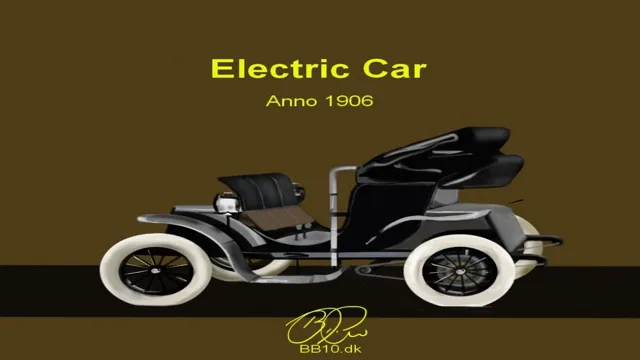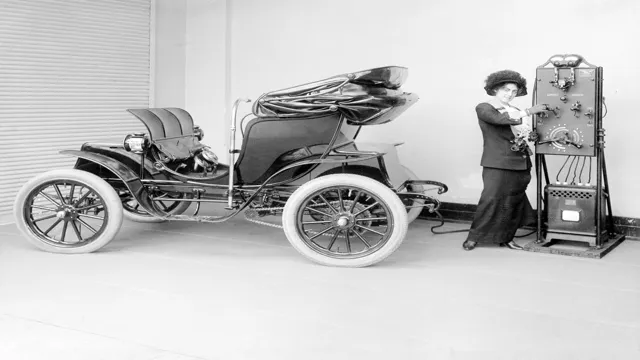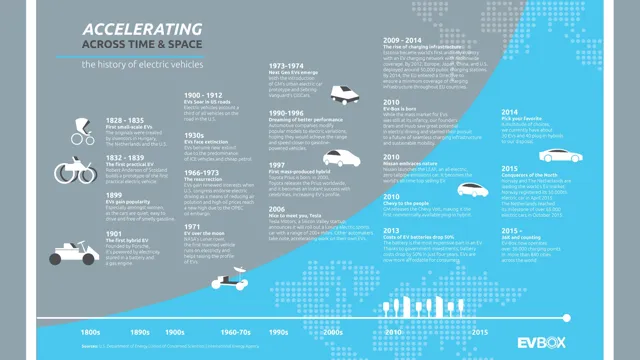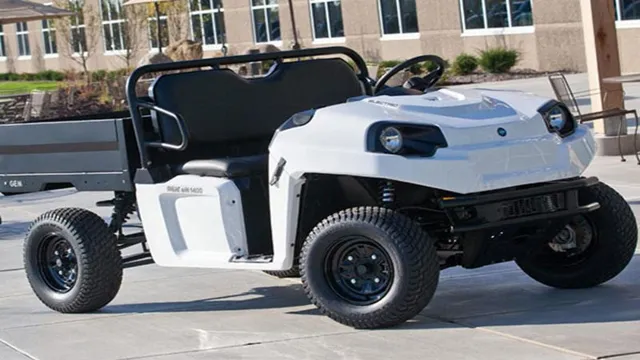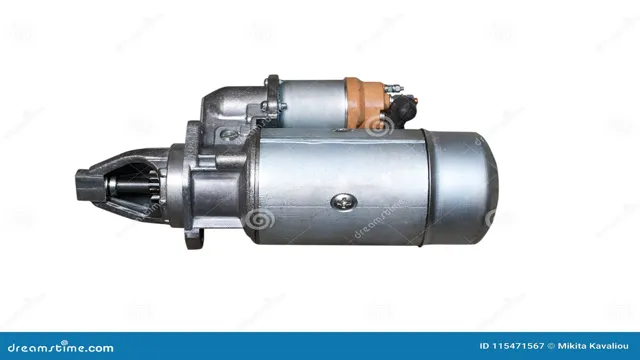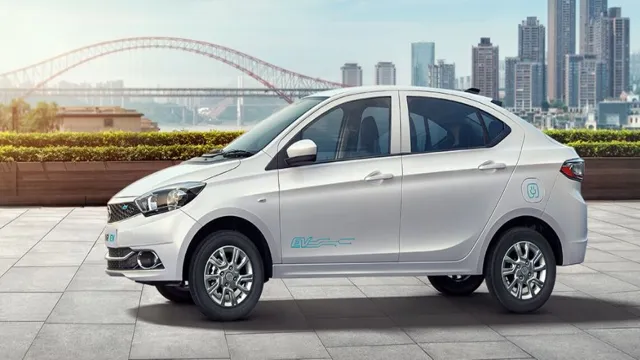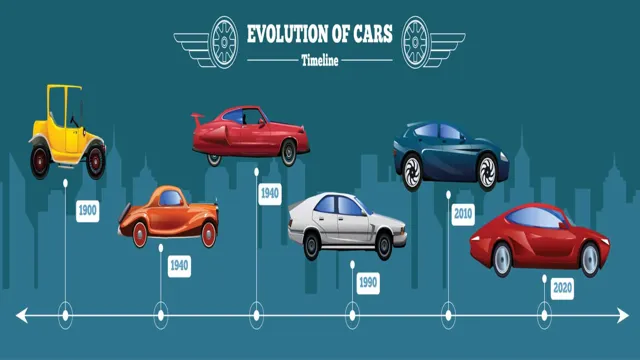A Journey through Time: Tracing the Fascinating Evolution of Electric and Hybrid Cars
Electric and hybrid cars are slowly but surely becoming a common sight on our roads. With decreasing prices and increasing awareness of the need to reduce carbon emissions, more and more people are considering buying electric or hybrid vehicles. But have you ever stopped to wonder about the history of these types of cars? Where did they come from? How did they evolve over time? This blog will explore the fascinating history of electric and hybrid cars, from their early beginnings to their modern iterations.
Get ready to take a journey through time and learn about the pioneers who paved the way for these eco-friendly vehicles.
Invention of the Electric Car
The history of electric and hybrid cars is a fascinating journey that dates back to the early 1800s. It wasn’t until 1832 when the first electric vehicle was introduced. This crude electric car was built by Robert Anderson, a Scottish inventor, and was powered by non-rechargeable primary cells.
Over the next century, electric cars were slowly developed, but the evolution of the gasoline engine proved to be a more viable alternative, especially since gasoline was cheap and readily available. However, in the 1970s, when the energy crisis hit, research into electric cars was reinvigorated. It was during this time that the first rechargeable hybrid car was developed by a team led by Victor Wouk.
This paved the way for the electric cars we see today, popularized by brands such as Tesla, BMW, and Nissan. The push towards eco-friendly transportation has fueled the innovation and design of electric and hybrid cars, providing an alternative to fossil fuels and reducing carbon emissions.
Early 1800s-1900s
The invention of the electric car took shape in the early 1800s and continued to evolve throughout the 1900s. Many inventors explored the concept of electric cars during this time, but it was Thomas Davenport who is credited as the first to create an electric car in 183 However, it wasn’t until the late 1800s when William Morrison designed the first successful electric car that had a range of up to 13 miles.
While electric cars were gaining traction and popularity, it was Henry Ford’s Model T, which ran on gasoline, that ultimately dominated the market. It wasn’t until the oil crisis of the 1970s that electric cars began to make a comeback. The early pioneers of electric cars paved the way for the future of sustainable transportation that we see today.
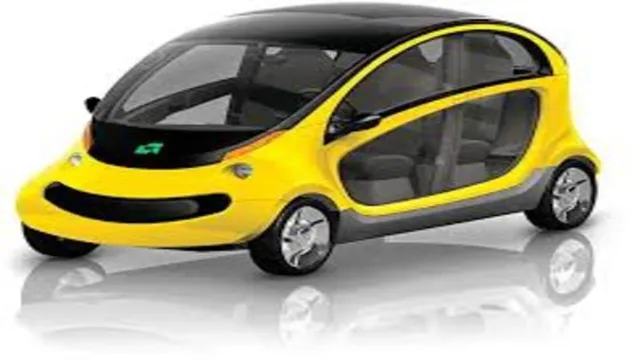
Oil and Gasoline Meritocracy
The invention of the electric car has disrupted the oil and gasoline meritocracy that has long dominated the automotive industry. For years, fossil fuel companies have held a monopoly over transportation fuels, dictating the price and availability of gasoline and diesel. However, the emergence of electric cars has begun to shift the balance of power in the automotive industry.
With more and more consumers opting for electric vehicles, oil and gasoline companies are being forced to adapt to a changing market. The rise of electric cars has given consumers more options when it comes to choosing their mode of transportation, and has also brought about a new era of innovation in the automotive industry. While electric cars still face challenges such as range anxiety and high upfront costs, continued advancements in technology are paving the way for a future where sustainable transportation is the norm.
The Reemergence of Electric Cars
The electric and hybrid car history spans back to the late 1800s when electric vehicles were first introduced. However, the combustion engine quickly took over, and electric cars were held back due to their limited range and long recharge times. It wasn’t until the 1990s that electric and hybrid cars began to make a comeback, with the release of the Toyota Prius and the emergence of Tesla Motors.
The popularity of these vehicles has only continued to grow in recent years as people become more environmentally conscious and the technology continues to advance, offering longer ranges and faster charging times. With the introduction of more affordable options, such as the Nissan Leaf and Chevrolet Bolt, electric cars are becoming an increasingly viable option for consumers. The future of transportation looks to be heading towards a more sustainable and environmentally friendly solution, making electric and hybrid cars an important piece of the puzzle.
2000s to Present
The 2000s saw a significant rise in the reemergence of electric cars. This is mainly due to various technological advancements that have made them more practical and cost-effective. The introduction of lithium-ion batteries for electric vehicles has been a significant breakthrough.
These batteries are more efficient and reliable than the traditional lead-acid batteries. The high cost of gasoline and concerns over environmental pollution also played a crucial role in the increased demand for electric cars. Today, electric cars are becoming increasingly popular, and many traditional car manufacturers are investing heavily in research and development to produce better, more reliable, and affordable electric cars.
Tesla is one of the leading electric car manufacturers, with its Model S being one of the most popular electric cars on the market. With the increasing demand and development of electric vehicles, it’s likely to become the future of the automobile industry.
Tesla’s Contribution
With Tesla’s entrance into the electric car market, the industry has been re-energized like never before. For years, electric vehicles were considered a niche market with limited appeal, but Tesla’s innovative technological advancements have helped make them increasingly popular. The electric car giant has made significant contributions to the development and manufacturing of electric cars, which have helped to improve their performance, range, and battery life.
Tesla has also made significant contributions to the world’s transition towards cleaner energy, creating a more sustainable future. Through its constant innovation and development of electric cars, Tesla has encouraged other automakers to invest in research and development of their electric car models, which has led to the growth of electric mobility worldwide. With Tesla’s continued contributions, we can expect to see more electric cars on the road than ever before.
Government Incentives
As climate change becomes more and more real, it’s crucial that we start to take action before it’s too late. One solution that’s been gaining popularity lately is the rise of electric cars. Governments around the world have taken notice and are starting to offer incentives to both car manufacturers and buyers to help boost the transition to a cleaner and more sustainable future.
From tax credits to grants for developing new technology, there’s no shortage of options available. And it’s not just the environment that stands to benefit – electric cars are cheaper to run and maintain in the long run, and they’re helping to reduce our dependence on fossil fuels. So, it’s a win-win situation! If you’re in the market for a new car, why not consider an electric one? Not only will you be doing your part for the environment, but you’ll also be taking advantage of some great deals that are on offer right now.
So let’s make the switch to cleaner, greener travel – one electric car at a time.
Hybrid Vehicles
When we talk about electric and hybrid cars, we think of them as a recent innovation. However, the history of these vehicles goes back to the 1800s. The first electric car was created in the 1830s, and throughout the 19th century, many inventors worked on electric vehicle technology.
Hybrid cars were introduced in the late 20th century, with the Toyota Prius being one of the first commercially successful models. As gas prices continued to rise and concerns about the environment grew, the demand for electric and hybrid cars increased. Today, these vehicles are more popular than ever before and continue to evolve with new features and technologies.
The future certainly looks bright for the electric and hybrid car industry, which is constantly pushing the boundaries of what’s possible in sustainable transportation.
Development and Advancements
Hybrid vehicles have become a popular choice for environmentally conscious individuals who want to reduce their carbon footprint without compromising on the convenience of owning a car. These vehicles offer the best of both worlds, combining the benefits of gasoline and electric power to increase fuel efficiency and reduce emissions. With advancements in technology, hybrid cars have become more efficient, affordable, and powerful, making them a viable option for a wider range of consumers.
Moreover, the development of plug-in hybrid electric vehicles (PHEVs) has provided an even more sustainable option, allowing drivers to charge their cars via a power outlet, and in some cases, even travel solely on electric power. As a result, owning a hybrid car has become an exciting prospect for those looking to make a positive impact on the environment while enjoying the benefits of private transportation.
Popular Models
Hybrid vehicles have become increasingly popular in recent years as people seek out more fuel-efficient and eco-friendly options. One popular model is the Toyota Prius, which has been a top choice for hybrid drivers since its launch in 199 Its sleek design and impressive fuel economy, with an estimated 58 MPG in the city and 53 MPG on the highway, make it an attractive option for those looking to save on gas.
Another popular hybrid vehicle is the Honda Accord Hybrid, which has been consistently highly-rated for its comfortable ride and luxurious interior. It boasts an estimated 48 MPG in the city and 47 MPG on the highway. There are also options for those who prefer SUVs, including the Toyota RAV4 Hybrid and the Lexus RX Hybrid.
These models offer spacious interiors and all the benefits of a hybrid vehicle, such as improved fuel efficiency and reduced emissions. Overall, there are now many high-quality hybrid vehicles available on the market, catering to a wide range of driver preferences and budgets. With environmental concerns on the rise, it’s no surprise that these eco-friendly options are becoming increasingly popular.
The Future of Electric and Hybrid Cars
When we look at the history of electric and hybrid cars, it’s clear that they have come a long way in the last few decades. While electric cars may have seemed like a futuristic concept in the past, they are now becoming increasingly popular as people seek out more environmentally-friendly modes of transportation. On the other hand, hybrid cars have been around for quite some time, providing a bridge between traditional gasoline-powered vehicles and fully electric ones.
As technology continues to advance, we can expect to see even more improvements in the performance and range of electric and hybrid cars. From faster charging times to longer battery life, these vehicles are poised to become a more practical option for many drivers in the future. As more people adopt electric and hybrid cars, we may even see a shift in the way that we think about transportation and the role that it plays in our daily lives.
Overall, the future of electric and hybrid cars looks bright, and we can expect to see more and more of them on the roads in the years to come.
Conclusion
In conclusion, electric and hybrid cars have a long and fascinating history, dating back over a century. From early experiments with batteries and motors, to the introduction of the world’s first production hybrid car in the late 1990s, these vehicles have come a long way. As we look to the future, it’s clear that the demand for electric and hybrid vehicles will only continue to grow, driven by concerns about climate change and the desire for more sustainable forms of transportation.
With technological advancements and changing attitudes, it seems likely that electric and hybrid cars will play a major role in the transportation landscape for many years to come. So, whether you’re a fan of sleek sports cars or practical family vehicles, there’s never been a better time to plug in and hit the road in an electric or hybrid car!”
FAQs
What was the first commercial electric car?
The first commercial electric car was built by Thomas Parker in 1884.
When did the first hybrid car come out?
The first hybrid car was released in 1997, called the Toyota Prius.
Who invented the first electric car?
The first electric car was invented by Robert Anderson in Scotland in 1832.
What is the history of electric cars in the US?
Electric cars were popular in the US at the beginning of the 20th century, but declined in popularity due to the availability of cheap gasoline. They regained popularity in the 2000s with the introduction of modern electric cars like the Tesla.
What was the first fully electric sports car?
The first fully electric sports car was the Tesla Roadster, released in 2008.
